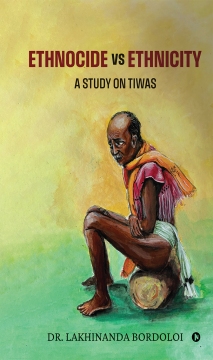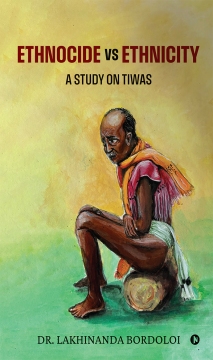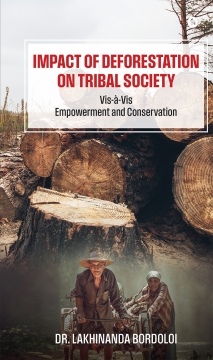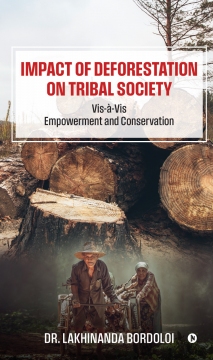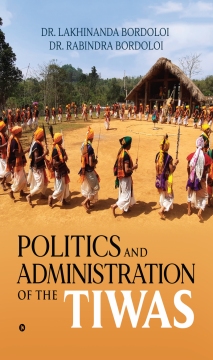
- Discover books
- For Writers
-
For Writers
-
Indie Author Championship
-
Challenges
Writing Contests
- Get Started

"It was a wonderful experience interacting with you and appreciate the way you have planned and executed the whole publication process within the agreed timelines.”
Subrat SaurabhAuthor of Kuch Woh Pal -
-
-
IN
- India
- Singapore
- Malaysia
- 0
Dr. Lakhinanda Bordoloi and Dr. Rabindra Bordoloi
Dr. Lakhinanda Bordoloi A post-graduate with a Ph.D. in Political Science, Lakhinanda Bordoloi hails from Kaki, Hojai, in the state of Assam. He has been working on documentation and interpretation of political institutions and ethnic life of the people of North East India. He has published several thought-provoking research papers in reputed academic journals and books. He has the credit in writing a number of books and editing souvenirs on language, culture, tradition and ethnicity. Currently, he is serving as an Assistant Professor at the Department of Political Science, Dhing College, NagaRead More...
Dr. Lakhinanda Bordoloi
A post-graduate with a Ph.D. in Political Science, Lakhinanda Bordoloi hails from Kaki, Hojai, in the state of Assam. He has been working on documentation and interpretation of political institutions and ethnic life of the people of North East India. He has published several thought-provoking research papers in reputed academic journals and books. He has the credit in writing a number of books and editing souvenirs on language, culture, tradition and ethnicity. Currently, he is serving as an Assistant Professor at the Department of Political Science, Dhing College, Nagaon, Assam. He can be contacted through email: [link removed]
Dr. Rabindra Bordoloi
A post-graduate with a Ph.D. in History, Rabindra Bordoloi hails from Kaki, Hojai, in the state of Assam. He has been working on local history, folk culture and ethnic life of North East India. So far, he has published several thought-provoking research papers in reputed academic journals and books. He has the credit in editing Watchword, a Peer Reviewed Annual Journal of Assam College Teachers’ Association, Jorhat Zone (2019& 2020). He has edited a book on Exploring Local History and Folk Culture of North East India in 2021. His area of interest is on ethnic and local history, culture and autonomy movements of North East India. Currently, he is serving as an Assistant Professor at the Department of History, N. N. Saikia College, Titabor, Jorhat, Assam. He can be contacted through email: rbordoloinns@gmail.com
Read Less...
Crop your profile image

Ethnocide vs Ethnicity
Books by Dr. Lakhinanda Bordoloi
The term ethnocide refers to the destruction of a culture without the killing of its bearers. It often leaves lasting scars on the affected ethnic group, eroding their sense of distinct identity and disconnecting them from their historical roots. The process among the Tiwa tribe of North East India led to their identity crisis. This book provides a panoramic view of ethnocide versus ethnicity manifested among them. Over the years they have suffered from prob
The term ethnocide refers to the destruction of a culture without the killing of its bearers. It often leaves lasting scars on the affected ethnic group, eroding their sense of distinct identity and disconnecting them from their historical roots. The process among the Tiwa tribe of North East India led to their identity crisis. This book provides a panoramic view of ethnocide versus ethnicity manifested among them. Over the years they have suffered from problems of loss of language and cultures. By integrating ethnographic and ethical perspectives on the tribe, this book underscores the complex challenges in safeguarding cultural diversity of ethnic groups in a multi-ethnic country like India.
Ethnocide vs Ethnicity
Books by Dr. Lakhinanda Bordoloi
The term ethnocide refers to the destruction of a culture without the killing of its bearers. It often leaves lasting scars on the affected ethnic group, eroding their sense of distinct identity and disconnecting them from their historical roots. The process among the Tiwa tribe of North East India led to their identity crisis. This book provides a panoramic view of ethnocide versus ethnicity manifested among them. Over the years they have suffered from prob
The term ethnocide refers to the destruction of a culture without the killing of its bearers. It often leaves lasting scars on the affected ethnic group, eroding their sense of distinct identity and disconnecting them from their historical roots. The process among the Tiwa tribe of North East India led to their identity crisis. This book provides a panoramic view of ethnocide versus ethnicity manifested among them. Over the years they have suffered from problems of loss of language and cultures. By integrating ethnographic and ethical perspectives on the tribe, this book underscores the complex challenges in safeguarding cultural diversity of ethnic groups in a multi-ethnic country like India.
Impact of Deforestation on Tribal Society
Books by Dr. Lakhinanda Bordoloi
Forests of North East India are now in a critical stage. Over the years due to extensive use of forest resources and the overflow of populations to the forest areas, the deforestation process started creating many environmental as well as socio-economic problems for the traditional forest dwelling communities, degrading their society and ways of living. The role of the forest dwelling tribal communities can’t be ignored for forest conservation as traditional
Forests of North East India are now in a critical stage. Over the years due to extensive use of forest resources and the overflow of populations to the forest areas, the deforestation process started creating many environmental as well as socio-economic problems for the traditional forest dwelling communities, degrading their society and ways of living. The role of the forest dwelling tribal communities can’t be ignored for forest conservation as traditionally they evolved a way of life which on the one hand, is woven around the forest ecology and forest resources, on the other hand, ensures that the forest is protected against the degradation my man and nature by evolving their unique and conservative system. Conservation helps the empowerment of forest communities and vice-versa. Their empowerment with provisions of all requirements prospers solving the problem of deforestation. This book discusses the impact of deforestation on tribal society vis-a-vis empowerment and conservation for the greater interest of protecting our natural environment and sustainable ways of living.
Impact of Deforestation on Tribal Society
Books by Dr. Lakhinanda Bordoloi
Forests of North East India are now in a critical stage. Over the years due to extensive use of forest resources and the overflow of populations to the forest areas, the deforestation process started creating many environmental as well as socio-economic problems for the traditional forest dwelling communities, degrading their society and ways of living. The role of the forest dwelling tribal communities can’t be ignored for forest conservation as traditional
Forests of North East India are now in a critical stage. Over the years due to extensive use of forest resources and the overflow of populations to the forest areas, the deforestation process started creating many environmental as well as socio-economic problems for the traditional forest dwelling communities, degrading their society and ways of living. The role of the forest dwelling tribal communities can’t be ignored for forest conservation as traditionally they evolved a way of life which on the one hand, is woven around the forest ecology and forest resources, on the other hand, ensures that the forest is protected against the degradation my man and nature by evolving their unique and conservative system. Conservation helps the empowerment of forest communities and vice-versa. Their empowerment with provisions of all requirements prospers solving the problem of deforestation. This book discusses the impact of deforestation on tribal society vis-a-vis empowerment and conservation for the greater interest of protecting our natural environment and sustainable ways of living.
Politics and Administration of The Tiwas
Books by Dr. Lakhinanda Bordoloi, Dr. Rabindra Bordoloi
It is one of the initiatives of the UNO to protect the socio-cultural heritage of various ethnic groups of the world. Its preservation is not only a necessity, but also a right of an ethnic community. The Constitution of India indorses the declaration of the UNO by incorporating the Fifth and Sixth Schedule into it. The Tiwas had traditional monarchy based on decentralized power structure in a number of principalities and political institutions. The democratic
It is one of the initiatives of the UNO to protect the socio-cultural heritage of various ethnic groups of the world. Its preservation is not only a necessity, but also a right of an ethnic community. The Constitution of India indorses the declaration of the UNO by incorporating the Fifth and Sixth Schedule into it. The Tiwas had traditional monarchy based on decentralized power structure in a number of principalities and political institutions. The democratic character was its great value for which it is running even in modern days. The emergence of modern democratic institutions is bringing changes in it. There is also movement for autonomy under the Sixth Schedule of the Constitution for which hectic political activities are on among them.
In this backdrop, this book aims at presenting a comprehensive understanding on the politics and administration of the Tiwas, from past to the present. The basic objective is to cast a deep into it and the tactics they use to adopt at various stages. It has been our effort to fill the gap, touch all aspects and reconstruct a theory on its values by systematic description and documentation.

Are you sure you want to close this?
You might lose all unsaved changes.
Select from one of our global stores to continue
 India
India
 Singapore
Singapore
 Malaysia
Malaysia
Warning Message
The items in your Cart will be deleted, click ok to proceed.











